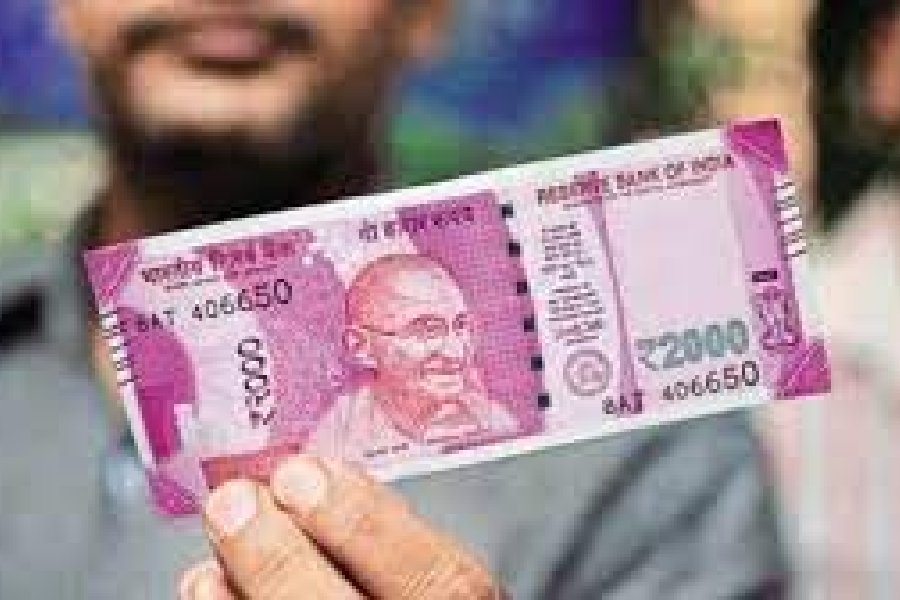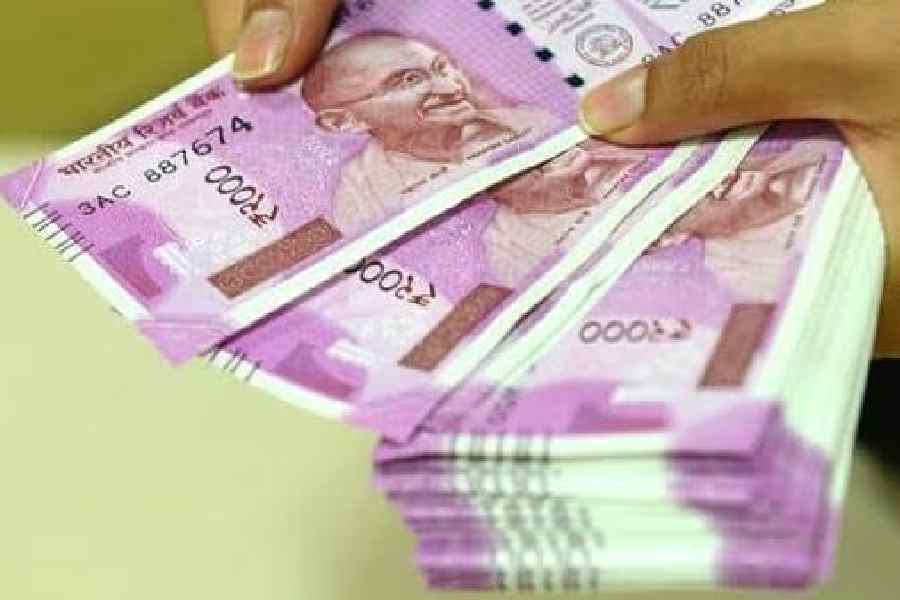The State Bank of India (SBI) on Sunday said no forms or identity cards are required for the exchange of Rs 2000 notes.
The clarification raised concerns about individuals or businesses who have hoarded the currency may use it to their advantage.
In a “partial modification’’ of instructions that were issued to its branches on May 19, the country’s largest lender said in a revised circular on Saturday that “the facility of exchange of Rs 2000 denomination bank notes to all members of the public up to a limit of Rs 20,000 at a time will be allowed without obtaining any requisition slip’’.
It went on to add that no identity proof is required to be submitted by the tenderer at the time of exchange.
“Please arrange accordingly and extend all co-operation to members of public so that the exercise is conducted in a smooth and seamless manner without any inconvenience to the public,” the bank said, while adding “Annexure III’’ which was attached to its earlier circular on May 19 stands withdrawn immediately.
While The Telegraph could not see the Annexure III, images of the request slip for the exchange of the Rs 2000 notes circulating in social media showed that the tenderer had to fill details such as the name of the bank branch, bank account if any, write his or her name in capital letters and show an original identity proof at the counter.
This included one of any six IDs — Aadhar card, driving license, voter ID card, passport, NREGA card and population register. The individual had to write down the identification number (of the ID proof).
The tenderer was also required to write down the details of the bank notes submitted for exchange in terms of number of pieces and value and give his or her signature apart from the date. The Telegraph could not verify the veracity of this request slip that has now been dropped.
While the change will benefit individuals who will not have to go through the process of writing all the details,there are concerns that hoarders may use it to their advantage.
“SBI: You can exchangeRs 2000 note without any slip or identity proof up to Rs 20,000 If this is true, black money hoarders may take advantage of this loophole,’’ tweeted CA Chirag Chauhan.
With SBI stipulating that tenderers will not have to submit any form or identity proof, other banks are likely to follow suit.
On Friday, the Reserve Bank of India (RBI) had surprised the nation by announcing the withdrawal of Rs 2000 notes from circulation. It had, however, said that the currency will continue to be legal tender till September 30, 2023. Members of the public can exchange or deposit the notes at bank branches. The facility of exchange will also be available at 19 regional offices of the RBI.
More importantly, the central bank said that people can exchange the Rs 2000 banknotes up to a limit of Rs 20,000 at a time. This would mean that while the upper limit per transaction is Rs 20,000, there is no bar on the number of such transactions meaning a customer can stand multiple times in a queue to exchange the notes, subject to the limit of Rs 20,000 per time
Though bankers do not expect a mad rush like the demonetisation in 2016, they do not rule out an increase in the footfall at certain branches beginning May 23. However, since the RBI has given a time of four months, the process is expected to be devoid of any chaos.











